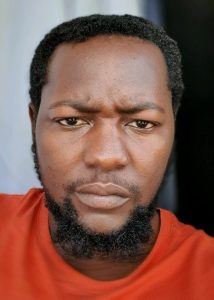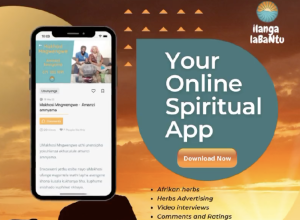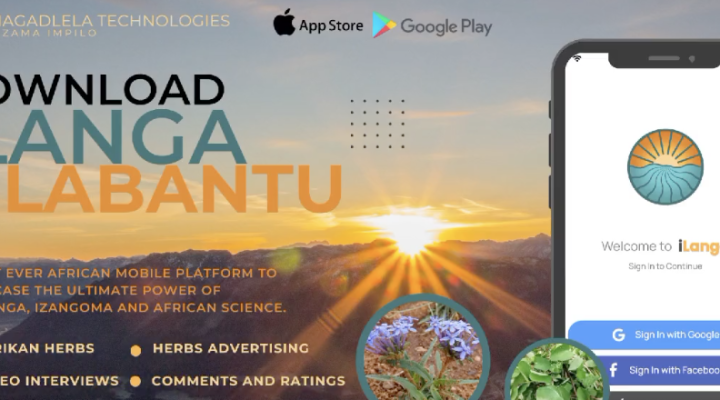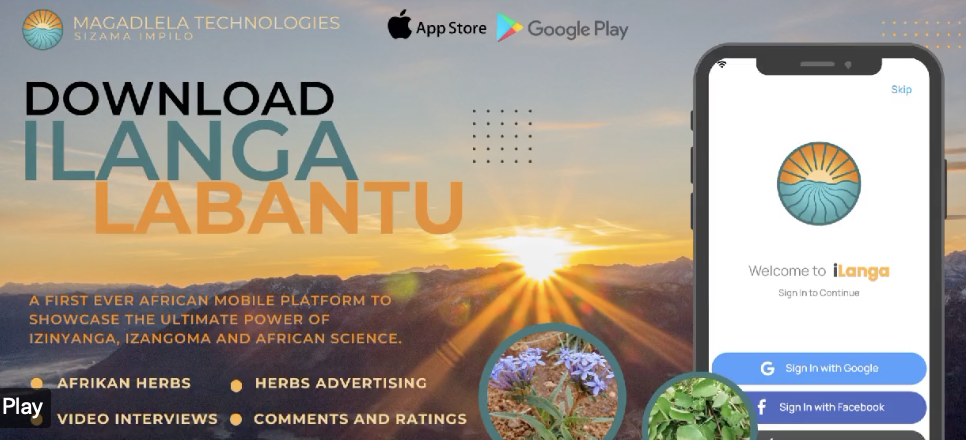They are Gen-Z Black South Africans, highly educated, raised in typical “Christian homes,” but now flipping the script. Via aggressive use of Instagram, Twitter and YouTube, they’re re-inventing themselves as entrepreneurial “Afro-spiritualist” healers, fortune readers or dream interpreters.
It’s all to do with how 100 years of Euro-Christian colonialism has left “African spiritualism” (the belief that African ancestors can communicate with the living) mocked and degraded as “demonic” in South Africa.

Nkosinathi Sangweni
Still today, “African spirituality receives a lot of condemnation from the dominant Christian South African community,” said Nkosinathi Sangweni, the Millennial software engineer who has created iLanga Labantu.
Hosted on the Apple Store and Google Android Store and created in May 2022, iLanga Labantu bills itself as the first-ever African mobile platform to connect African fortune-tellers, tarot-readers, iZaNgoma (spirit drum healers), and the digitally savvy young Africans who seek their services.
It doesn’t escape Sangweni’s mind that white and Asian mediums, magicians, healers and yoga healers in places like Hollywood or Japan are considered fascinating objects of pop culture, wealthy and revered, yet African ones are condemned as perverse and demonic.
“There are movies to this day where African spirituality is portrayed as inferior,” he said. “In Japan and Hollywood, there are billions of dollars spent every year to promote their astrology practices. Dr. Oz is feted worldwide for that.”

Gogo Khanyakude
So, Sangweni’s quest dovetails into other South African Black GenZ Afro-spiritualists like Tiisetso Makhubedo aka @Gogo_khanyakude who spins the moniker of Apple’s famous “i” prefix (iPhone, iPad, iMac) and describes himself as “iSangoma.” For him, this means digital African spiritualist, educator and mindfulness teacher.
Next to @Gogo_Khanyakude comes his peer @Spritual_Leo who describes herself as a Millennial, online “African traditional healer,” “post-Christian” feminist and proud engineer for clients via WhatsApp. Her online consultations, dream interpretations and “cross-over meditation” are for a fee.
They’re all tied together by one thread — exploiting digital tech to embrace once shunned African spiritualism.
Makhubedo, who was born in South Africa, currently divides his time between California and South Africa, and his online presence defies the entrenched Christian-colonial stereotype of African spiritualists, herbalists and palm readers.
His calling to African spiritualism weaves through his pursuit of Euro-Western education.
“I was attending varsity at the University of Cape Town until my calling interrupted my honors,” he explained. “I’m currently doing my honors in mindfulness-based stress reduction.” For him, it’s best to combine both the worlds of Euro-Christianism and run a consultancy in African indigenous beliefs. His clients include companies that want to learn how they can onboard African spirituality and meditation to make their highly educated employees at ease with what he calls organic African “spiritual” corporate workplace harmony.
 “It’s a GenZ spiritual reawakening, but they are not dumping either legacy [of] Christian upbringing or Africanist spiritualist beliefs. They’re mixing both and rejecting neither. They’re saying it’s good to be Baptist and still believe African departed ancestors talk to us the living,” explained Tendai Muchatuta, a Black pastor and leader of the staunchly Africanist independent All Nations Church in Johannesburg.
“It’s a GenZ spiritual reawakening, but they are not dumping either legacy [of] Christian upbringing or Africanist spiritualist beliefs. They’re mixing both and rejecting neither. They’re saying it’s good to be Baptist and still believe African departed ancestors talk to us the living,” explained Tendai Muchatuta, a Black pastor and leader of the staunchly Africanist independent All Nations Church in Johannesburg.
Adopting indigenous African spiritual beliefs, fashion and rituals can get Black South Africans thrown off ‘Westernized’ corporate spaces. BNG reported in February of ongoing court litigations where some private Christian schools in South Africa, which are predominantly white and high-status, throw out Black Zulu students who come to classes wearing African spiritual goatskin jewelry in keeping with their ancestral beliefs. The hostility to African faith ornaments and fashion in South Africa also extends to ‘Westernized’ retail and corporate business spaces.
So to gain acceptance, the GenZ spiritualists are dangling new tech to deepen their connection with a young, Millennial generation that is Black, raised on Christian foundations but feeling spiritually disconnected.
“According to my view, it is because the colonial rule embarked on mass brainwashing campaigns to uproot us from spiritual nature. We are fighting to change this narrative by sharing the hard-core facts about African spirituality,” Sangweni said. “This includes Dr. Gabriel Oyibo from Nigeria, a great inspiration to us because he has proved using mathematics that African spirituality is not mumbo-jumbo.”
This digital-led spiritual awakening finds fertile connections because in supposedly “Christian” South Africa, the Sangomas (ancestral-belief healers) are one of the richest people because a majority of Black people still consult them for matters of health and spiritual mental health.
Sangweni sums it up: “We are out to promote these (spiritualist) practices to our people so that they are seen as normal again.”
Related articles:
In South Africa, an unholy trinity — televangelists, TV stations and cellular companies
As joblessness rocks South Africa, fake pastor diplomas are in demand


